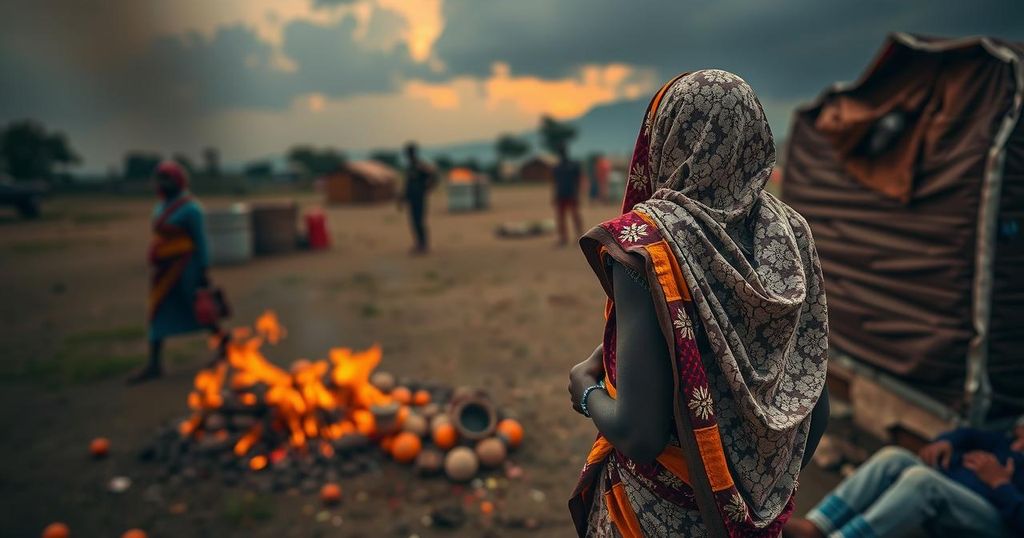Sudan Faces Severe Health Crisis Amidst Ongoing Conflict and Famine

The humanitarian crisis in Sudan worsens as cholera and dengue fever outbreaks coincide with severe famine conditions. Over 28,000 cholera cases and 836 deaths have been reported, while hunger persists due to conflict and blockades. Nearly 80% of health facilities are non-functional, making the situation more critical. Despite these challenges, humanitarian organizations strive to provide aid to millions in need.
The humanitarian situation in war-torn Sudan has deteriorated significantly as cholera and dengue fever outbreaks coincide with ongoing severe famine conditions. With reports of over 28,000 cholera cases and 836 fatalities since late July, the healthcare system has been pushed to the brink of collapse. Heavy rains causing flooding have exacerbated the cholera outbreak, primarily in Kassala, while dengue fever cases are surging in both Kassala and Khartoum. In response, health authorities have launched vaccination campaigns, yet the blockade and violence have severely hindered humanitarian efforts.
In addition to deteriorating health conditions, hunger levels in Sudan remain alarmingly high. Reports indicate that poverty and violence, particularly in North Darfur, have impeded the delivery of humanitarian aid. NGOs are seeing acute malnutrition rates exceeding famine thresholds in internally displaced persons camps, leading to significant displacement among vulnerable populations. The UN Office for the Coordination of Humanitarian Affairs (OCHA) has highlighted that many essential services including vaccination programs have been suspended due to prolonged conflict.
Amidst these crises, nearly 80 percent of health facilities in the most affected regions are barely operational or completely shut down, hindering the battle against preventable diseases. Attacks on healthcare personnel and facilities have surged, compromising medical staff safety and further affecting care delivery. Despite these overwhelming challenges, aid organizations have persisted in scaling up relief efforts, aiming to assist over 12 million people in desperate need.
The ongoing conflict in Sudan has had devastating effects, particularly on the nation’s healthcare system and food security. Humanitarian agencies, including the UN and Médecins Sans Frontières (MSF), have expressed serious concerns regarding the rapid rise in cholera and dengue fever cases, linked to the destruction wrought by war. Heavy rains have contributed to contaminated water supplies, leading to significant health crises in various states such as Kassala and Khartoum. Moreover, the blockade in conflict areas is exacerbating hunger levels, with alarming rates of acute malnutrition being reported in displacement camps across the country. The unrest has also displaced millions, creating a dire need for humanitarian support.
In summary, Sudan faces an escalating humanitarian crisis characterized by rising cases of cholera and dengue fever coupled with critical hunger levels. The combination of a weakened healthcare system, ongoing conflict, and logistical challenges are compounding the suffering of millions. Immediate humanitarian intervention is essential to address health emergencies and provide food security to those affected, but ongoing violence and blockades pose significant barriers to effective relief efforts. The international community must recognize and respond to the urgent needs of the Sudanese population.
Original Source: news.un.org






